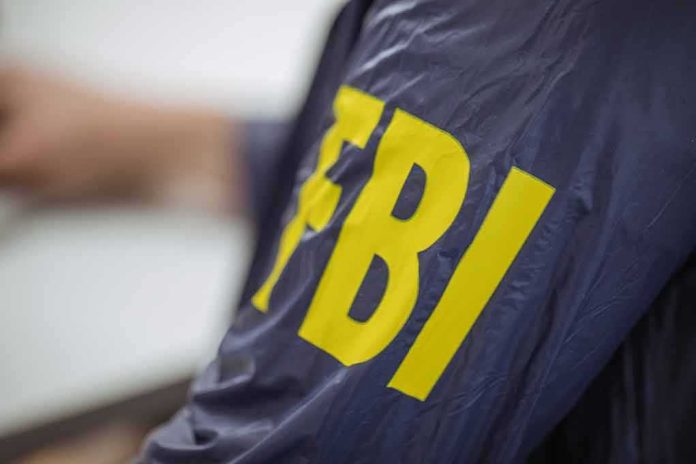
The Sinaloa Cartel employed a sophisticated hacker to infiltrate Mexico City’s surveillance cameras, successfully tracking and eliminating FBI informants while compromising a senior FBI official’s phone in a devastating breach of security.
Key Takeaways
- A Sinaloa Cartel hacker accessed an FBI assistant legal attaché’s phone records and utilized Mexico City’s camera system to identify and kill potential informants in 2018.
- The breach was discovered during an FBI investigation of Joaquin “El Chapo” Guzman, highlighting major vulnerabilities in U.S. law enforcement operations in Mexico.
- The Justice Department Inspector General’s audit revealed the incident, describing the technical surveillance threat as “existential” to FBI and CIA operations.
- The cartel’s use of sophisticated technology demonstrates their evolution into tech-savvy criminal organizations capable of countering U.S. surveillance tactics.
- The FBI is now developing a strategic plan to protect sensitive information and agents from growing surveillance threats posed by cartel operations.
Cartel’s Deadly High-Tech Surveillance Tactics Exposed
The Sinaloa Cartel, one of Mexico’s most powerful drug trafficking organizations, successfully weaponized Mexico City’s own surveillance camera network against FBI operations in a shocking security breach. According to a Justice Department Inspector General report, a cartel-employed hacker infiltrated the city’s extensive camera system in 2018, using it to track a senior FBI official through the streets of Mexico City. The hacker also compromised the FBI assistant legal attaché’s phone, gaining access to sensitive communications and identifying potential informants who were subsequently targeted.
“According to the FBI, in addition to compromising the ALAT’s phone, the hacker also accessed Mexico City’s camera system, used the cameras to follow the ALAT through the city, and identified people the ALAT met with,” the report stated. The cartel then used this intelligence “to intimidate and, in some instances, kill potential sources or cooperating witnesses,” according to an FBI case agent cited in the report. The breach occurred during ongoing investigations into Joaquin “El Chapo” Guzman’s criminal empire, demonstrating the cartel’s aggressive countermeasures against law enforcement.
🚨🇲🇽 BREAKING – DOJ: SINALOA CARTEL HACKED FBI TECH TO HUNT AND KILL INFORMANTS
Turns out the Sinaloa cartel isn’t just moving kilos- they’re moving bytes, too.
A DOJ bombshell says in 2018, a cartel-linked hacker cracked into an FBI official’s phone and tapped into Mexico… https://t.co/WYE0JIF3NX pic.twitter.com/TNImrCdCn1
— Mario Nawfal (@MarioNawfal) June 28, 2025
Evolution of Cartel Technology Creates “Existential Threat”
The security breach represents a dangerous evolution in cartel operations, as these criminal organizations increasingly employ sophisticated technology to counter American law enforcement efforts. The inspector general’s audit describes this growing technological capability as creating an “existential” threat to FBI and partner agency operations. With billions of dollars in drug profits at their disposal, cartels are investing heavily in surveillance technology, hacking capabilities, and cryptocurrency transactions to evade detection and neutralize informants.
“The cartels run a multibillion-dollar global enterprise and utilize sophisticated technology to enhance their business operations,” said Derek Maltz, former head of the DEA’s Special Operations Division. “They utilize state-of-the-art sophisticated surveillance techniques to identify law enforcement activities and their adversaries.”
This technological evolution presents a significant challenge to U.S. border security efforts. While President Trump has prioritized cracking down on cartels, labeling them as foreign terrorist organizations, their infiltration of critical infrastructure in Mexico demonstrates the sophisticated nature of the threat. The incident raises serious questions about the security of surveillance systems in countries where American agents operate, especially as these systems can be compromised and weaponized against those they were designed to protect.
U.S. Financial Sanctions Target Cartel Money Laundering Networks
The revelations about the Sinaloa Cartel’s hacking capabilities come as the U.S. Treasury Department recently imposed sanctions on two Mexican banks and a brokerage firm for laundering money for drug cartels. The brokerage firm, Vector Casa de Bolsa, is owned by Alfonso Romo, the former chief of staff for ex-President Andrés Manuel López Obrador, highlighting potential political connections that facilitate cartel operations. Despite these sanctions, Mexico’s government has defended the financial institutions, disputing the U.S. Treasury’s claims.
“Some within the FBI and partner agencies, such as the Central Intelligence Agency (CIA), have described this threat as ‘existential,’ the report said.” This assessment underscores the gravity of the situation facing U.S. law enforcement as they combat increasingly sophisticated cartel operations that now include cyber warfare capabilities. The FBI is reportedly developing a comprehensive strategic plan to protect its personnel and sensitive information from these evolving surveillance threats, though specifics remain classified.
Somehow this hacker gained access to 1) phone call data, and 2) data collected by municipal surveillance cameras.
───────────A Mexican drug cartel hired a hacker to surveil the movements of a senior FBI official in Mexico City in 2018 or earlier, gathering… pic.twitter.com/q3HmUD8AJd
— US Ship of State (@US_ShipOfState) June 29, 2025



